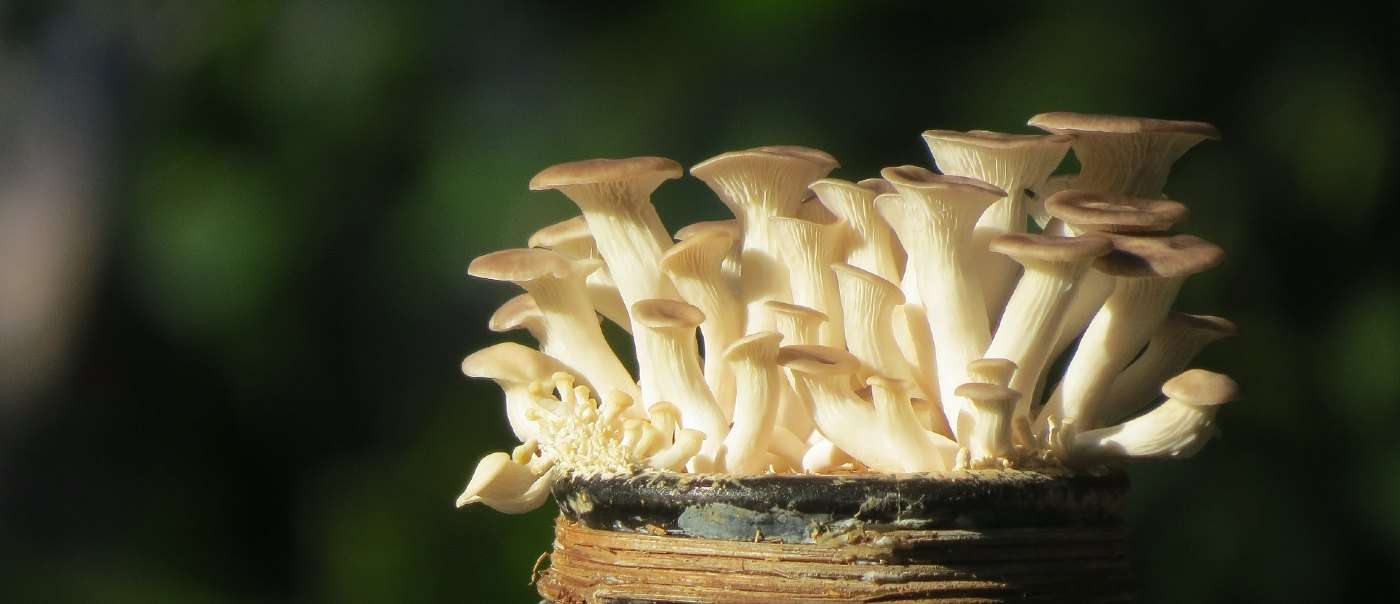Home-grown mushroom kits are seeing an explosion in demand, giving people something to do, watch, and cheer on while they're stuck at home.
Lockdown and travel restrictions has led to a resurgence in the popularity of crafts, gardening, baking, and other at-home hobbies. Remarkably, half of Canadians grew their own food to some degree last year—17% of whom did so for the first time.
For many of these beginner horticulturalists, mushrooms represented a super-easy way to start things off with, especially if they didn't have any soil to utilize. The Guardian reports that some companies are seeing 300%-400% increases in sales of starter kits for genera like oyster mushrooms, a beautiful gilled fungi that grows horizontally on logs, trees, and hills in nature.
People like Willoughby Arevalo, a mycologist from Vancouver, have noted the stratospheric rise in mushroom kits sales. Author of DIY Mushroom Cultivation, he credits their fast daily growth, compared to the slow plodding of windowsill herbs, as one of their strongest appeals.
"It's relatively low-barrier. They're more expensive than making your own once you have the system set up to do so, but they're not that expensive," said Arevalo to the National Post (starter kits typically range from $25-$35). "And it can really bring a sense of amazement to be able to share space with these mushrooms as they fruit."
Some have taken it farther than simply something to marvel at. The Guardian reports on one Australian man and his wife using the pandemic time to transform their laundry room into an environment for growing almost $500 worth of blue, tan, white, and Queensland oyster mushrooms every few months.
"Sharing them is such a nice thing, and we've been swapping them with people for backyard eggs or sourdough bread," George Clipp from Melbourne told the Guardian. "They're like an alternative currency, which is pretty cool."
Lockdown and travel restrictions has led to a resurgence in the popularity of crafts, gardening, baking, and other at-home hobbies. Remarkably, half of Canadians grew their own food to some degree last year—17% of whom did so for the first time.
For many of these beginner horticulturalists, mushrooms represented a super-easy way to start things off with, especially if they didn't have any soil to utilize. The Guardian reports that some companies are seeing 300%-400% increases in sales of starter kits for genera like oyster mushrooms, a beautiful gilled fungi that grows horizontally on logs, trees, and hills in nature.
People like Willoughby Arevalo, a mycologist from Vancouver, have noted the stratospheric rise in mushroom kits sales. Author of DIY Mushroom Cultivation, he credits their fast daily growth, compared to the slow plodding of windowsill herbs, as one of their strongest appeals.
"It's relatively low-barrier. They're more expensive than making your own once you have the system set up to do so, but they're not that expensive," said Arevalo to the National Post (starter kits typically range from $25-$35). "And it can really bring a sense of amazement to be able to share space with these mushrooms as they fruit."
Some have taken it farther than simply something to marvel at. The Guardian reports on one Australian man and his wife using the pandemic time to transform their laundry room into an environment for growing almost $500 worth of blue, tan, white, and Queensland oyster mushrooms every few months.
"Sharing them is such a nice thing, and we've been swapping them with people for backyard eggs or sourdough bread," George Clipp from Melbourne told the Guardian. "They're like an alternative currency, which is pretty cool."
Fears of food shortages, as found in Canadian home growers, drove on the cultivation of produce for some during the pandemic, so Clipp's remark about currency isn't far off the mark. If the pandemic were worse, and supply chains were impossible to maintain, having so many pieces of food, rich in various minerals and B vitamins, becomes far more than just a home-hobby.
SHARE the News With Pals Who Need a New (Delicious) Hobby…










Be the first to comment